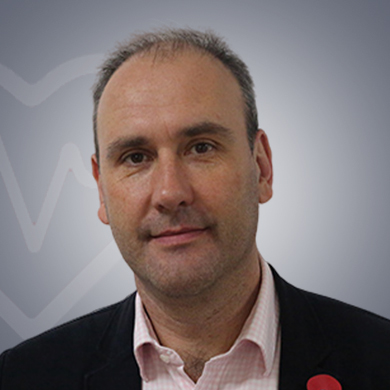
20 Years of experience
Speaks: English
Radiation oncologists are trained in treating cancer with radiation therapy or high-energy x-rays to kill cancer cells. Planning, also called mapping, is an important part of the job of radiation oncologists. The conditions that radiation oncologist Paul Shaw treats are listed below:
An oncologist may use radiation therapy for the treatment of lung, head & neck, prostate, and breast cancer. Radiation therapy is a treatment that uses a high-energy beam to kill cancer cells, The radiation treatment procedure is usually painless, but it might cause some skin discomfort. Radiation therapy is often used after surgery.
Some of the common symptoms of cancer are listed below. If you have any of these symptoms, consult an oncologist:
Cancer can cause almost any type of sign or symptom. You might experience both signs and symptoms of cancer, which can show that there is some issue in your body. Recognizing these symptoms can help in an earlier diagnosis. When cancer tends to grow, it could push on cause signs and symptoms.
Dr Paul Shaw is available from Monday to Saturday, 11 am to 5 pm. The doctor is not available on Sunday.
Some of the popular procedures that Dr Paul Shaw performs are
Proton therapy is safer and more effective than radiation therapy because it delivers a high dose to a specific area. A radiologist uses a beam of protons to deliver a dose of radiation therapy for the treatment of cancer. It destroys cancer cells and causes less damage compared to traditional radiation. This procedure is also painless and noninvasive. CyberKnifie is another powerful radiation therapy used for cancer treatment. It is a lightweight linear accelerator placed on a robotic arm. Real-time images allow patient movement tracking with high accuracy. The CyberKnife also uses real-time X-rays to find the exact position of the lesion during treatment.

Share Your Experience about Dr. Paul Shaw

Radiation oncologists work with surgeons, medical oncologists, and other doctors to find out the most appropriate treatment for cancer. Before performing radiation therapy, radiation oncologists use certain software to map out the location where the radiation will be delivered to their patients. They also evaluate which type of radiation therapy to use. Radiation oncologists also spend much time planning and performing radiation procedures. Planning plays a significant role in cancer treatment, as radiation has become more targeted. Radiation oncologists remain in touch with cancer patients post-treatment to keep a track of recovery.
The tests required before and during the consultation by a radiation oncologist are listed below:
A mammogram is the most common test for detecting breast cancer. Having mammograms regularly can lower the overall risk of mortality to breast cancer. It is easier to treat and before it is big enough to feel or cause symptoms.
Radiation oncologists are responsible for treating different types of cancer. If a person has been diagnosed with any of the following conditions, they should see a radiation oncologist:
You need to see a radiation oncologist if you have the below-listed symptoms: :